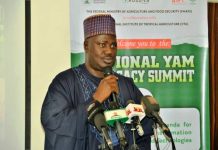
The Federal Government, through the Federal Ministry of Health and Social Welfare, has reaffirmed its commitment to ending HIV/AIDS as a public health threat by 2030. This was marked by the official launch of the ‘Free to Shine’ Campaign for the South-East region in Enugu recently by the Organization of African First Ladies for Development OAFLAD.
Speaking at the event, Nigeria’s First Lady, Senator Oluremi Tinubu, CON, flagged off the campaign as part of her two-day working visit to Enugu State. She described the initiative as a regional extension of a broader advocacy programme spearheaded by the African Union and the Organisation of African First Ladies for Development (OAFLAD), targeting the elimination of HIV/AIDS, Syphilis, and Hepatitis by 2030.
“Nigeria bears the highest burden of HIV/AIDS in Sub-Saharan Africa, particularly among children, women, and other vulnerable groups,” the First Lady stated. “The Free to Shine campaign seeks to reverse this trend by preventing new infections, especially mother-to-child transmission, and ensuring that every child born with HIV receives treatment and care.”
The campaign has already been launched across five geopolitical zones, with the South-East being the final region. According to the Federal Ministry of Health, over 100,000 children and nearly 2 million adults were living with HIV in Nigeria in 2024. A significant number of HIV-positive mothers do not test their infants early, often due to ignorance or lack of awareness, contributing to thousands of avoidable child deaths.
Senator Tinubu also announced her advocacy for the Triple Elimination of HIV/AIDS, Syphilis, and Hepatitis, highlighting their profound public health impact. Untreated, these diseases contribute to miscarriages, stillbirths, congenital anomalies, liver disease, and infant mortality.
“This campaign is part of our collective vision for a healthier Nigeria, in line with the Renewed Hope Agenda of President Bola Ahmed Tinubu, GCFR. We must deepen engagement with traditional and faith-based institutions and expand access to testing, counselling, and treatment,” she said.
The First Lady commended health workers, national agencies like NACA and NASCP, and international partners including WHO, UNAIDS, UNICEF, UNDP, PEPFAR, and EGPAF, for their continued support. She urged First Ladies from other states to take ownership of the campaign in their jurisdictions.
In a direct appeal to the youth, she emphasized their role in the campaign’s success. “You are the most vulnerable but also our greatest hope. Please protect yourselves.”
In his remarks, the Honourable in Minister of State for Health, Dr. Iziaq Adekunle Salako, praised the First Lady as Nigeria’s “Chief Public Health Champion”, noting her role in galvanizing national response efforts.
“Your leadership has underscored that HIV, Hepatitis, and Syphilis are preventable and treatable. These are not death sentences,” he said.
Dr. Salako outlined Nigeria’s multi-faceted strategy, including: Prevention of mother-to-child transmission (PMTCT), Voluntary medical male circumcision (VMMC), Expanded access to Pre- and Post-Exposure Prophylaxis (PrEP/PEP), Increased testing and treatment for other STIs.
He noted that 1.7 million Nigerians are currently on antiretroviral therapy (ART), with sustained budgetary provisions to ensure drug availability. HIV-positive individuals are also being integrated into health insurance schemes to access essential tests and long-term care.
According to new data from NASCP, Nigeria is witnessing a steady decline in new HIV infections and vertical transmissions, with projections indicating an even sharper drop by the end of 2025.
He called on state governments to increase domestic funding, absorb key health workers, and reduce reliance on dwindling donor support.
In a powerful message to young people, the Minister reiterated: “The best prevention for HIV and other STIs is a cup of water not before, not after but instead of sex.”
The ‘Free to Shine’ Campaign, operating under the Renewed Hope Initiative, continues to mobilize national action through awareness, prevention, and sexual health education. With sustained leadership, local commitment, and community engagement, Nigeria is poised to meet the UNAIDS 95-95-95 targets by 2030.
Signed
Alaba Balogun
Deputy Director
Information & Public Relations
12 June 2025





